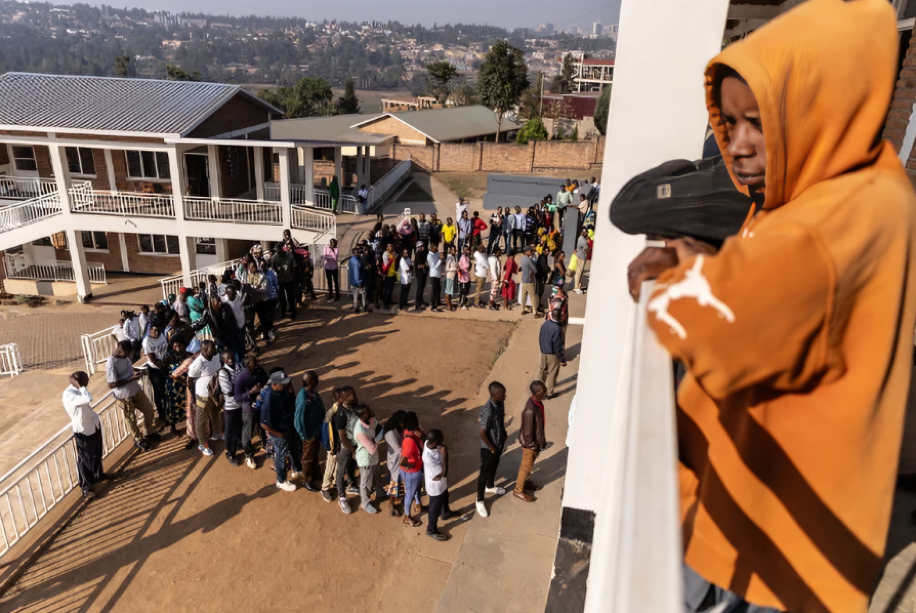- 16:35Trump's Presidency Sparks Call for a Stronger Europe, Say Macron and Scholz
- 16:30Supersonic winds discovered on distant exoplanet WASP-127b
- 16:04Elon Musk responds to allegations of ‘Nazi salute’ at inauguration
- 15:45Berlin Film Festival 2025: A showcase of cinematic brilliance and political undertones
- 15:38Ukraine-Russia conflict: Key developments on day 1,063
- 15:12Sonos' uncertain future: Tech companies eye struggling audio innovator
- 15:05Spanish PM calls for European rebellion against Silicon Valley's influence
- 14:41Predicting pandemics: How AI is reshaping the fight against viral evolution
- 14:35Tech support for warfare: Google's AI assistance to the Israeli military
Follow us on Facebook
Kagame's Extended Reign: Rwandans Vote in Presidential Election
In a move that has drawn both praise and criticism, Rwandans are set to vote in a presidential election on July 15, 2024. This election is expected to extend the long-standing rule of President Paul Kagame, who has been in power since 1994, consolidating his firm grip on the country's leadership.
The election comes amid a complex political landscape, where Kagame's authoritarian tendencies have been a subject of ongoing debate. While some have lauded his leadership for presiding over Rwanda's impressive economic growth following the 1994 genocide, others have condemned his harsh restrictions on human rights and the suppression of political dissent.
Registered voters, numbering 9.5 million out of a population of 14 million, will choose between Kagame and his two approved challengers: Frank Habineza of the Democratic Green Party of Rwanda and independent candidate Philippe Mpayimana. However, the outcome is widely expected to favor Kagame, who faced similar opponents in the 2017 election and secured nearly 99% of the vote.

Habineza, confident about his party's improved performance this time, told the Associated Press that "the ruling party and Rwandans have been asking me to stand for another mandate." Kagame, on the other hand, has indicated that he is ready to "comfortably go home and rest" if the people so desire.
The election takes place against the backdrop of heightened regional tensions, as Rwanda is embroiled in a conflict in the neighboring Democratic Republic of Congo, where its forces are fighting alongside the M23 rebel group. The United States government has described the M23 as being backed by Rwanda, a claim that the Rwandan government has refuted, accusing the Congolese military of recruiting fighters who were involved in the 1994 genocide. Rights organizations continue to raise concerns over the suppression of dissent and the limited space for debate in Rwanda. Amnesty International has expressed alarm over "threats, arbitrary detention, prosecution on trumped-up charges, killings, and enforced disappearances" targeting the political opposition and civic groups, which has a "chilling effect" on the country's democratic landscape.
As Rwandans prepare to cast their ballots, the international community will be closely watching the outcome and its implications for the country's future. The election will serve as a test of Kagame's continued grip on power and the extent to which he is willing to address the concerns raised by both supporters and critics of his long-standing rule.




Comments (0)